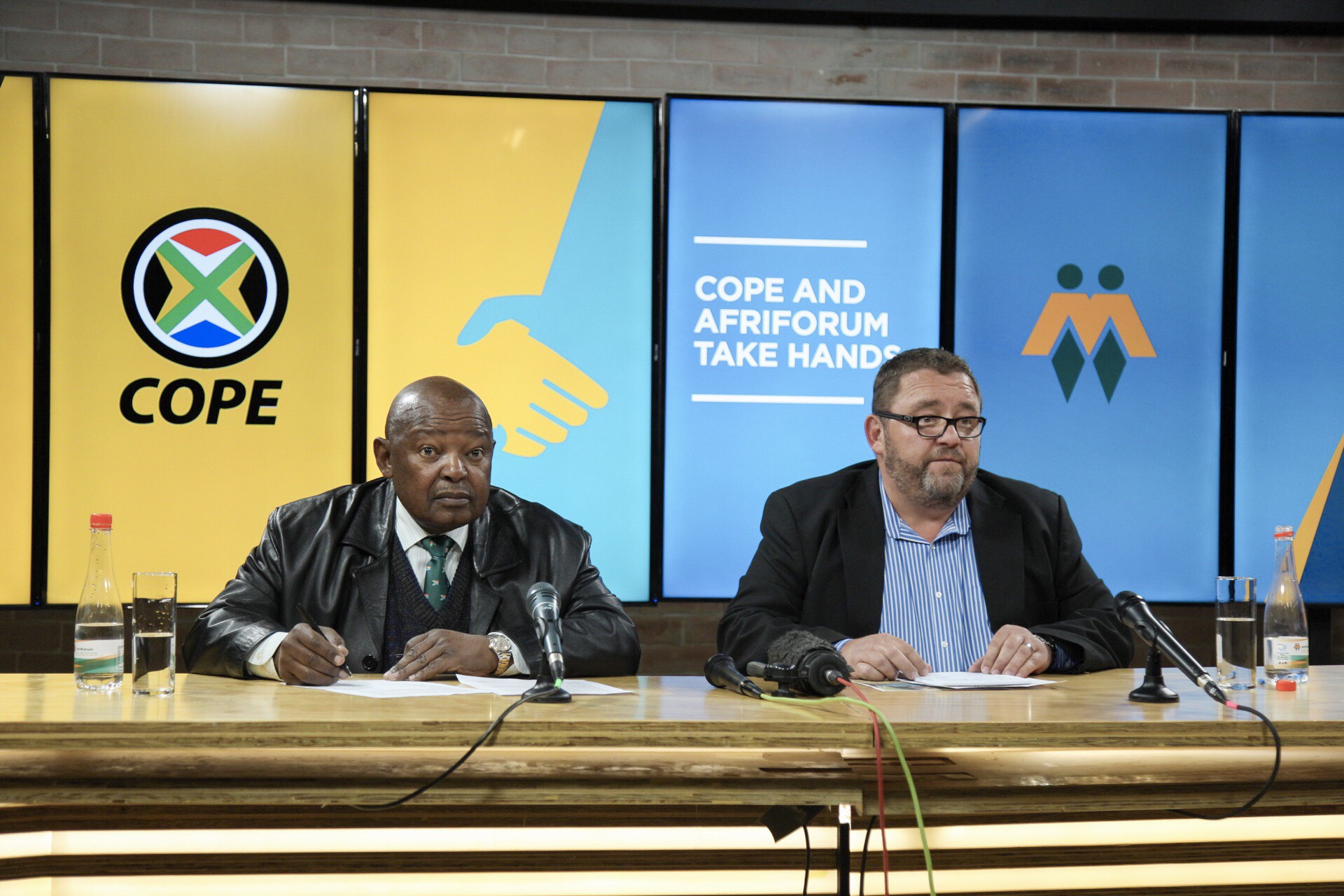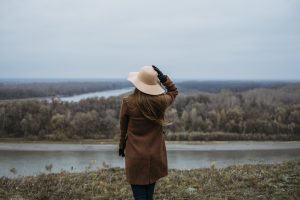COPE and AfriForum take hands in opposing the amendment of the Constitution
COPE and AfriForum announced at a joint media conference held in Pretoria that they are joining forces to request that the South African public and the international community apply pressure to stop the ANC/Parliament from acting without a legal mandate from the South African voters in their illegitimate bid to amend the Constitution, to protect the Constitution, property rights, the economy and the 1994 settlement.
Mosiuoa Lekota, President of the South African opposition party COPE, and Kallie Kriel, CEO of the civil rights organisation AfriForum, will visit foreign embassies in South Africa together to request that the international community apply pressure on the South African government and the ruling ANC to honour the South African Constitution, property rights and the 1994 settlement and that the ANC accepts that they don’t have a legitimate mandate from South African voters via an election to amend the Constitution. The embassies to be visited will be announced as soon as the appointments have been made.
COPE and AfriForum’s decision to defend the Constitution, property rights and the 1994 settlement came after President Cyril Ramaphosa’s announcement on 31 July this year that he and the ANC had decided to amend the property rights clause in Section 25 of the South African Constitution to allow for expropriation without compensation.
According to Lekota, President Ramaphosa’s announcement to change the Constitution’s conditions in terms of property rights has violated his oath of office as well as Section 83(b) of the Constitution, which stipulates that the President of South Africa must uphold, defend and respect the Constitution. Lekota pointed out that the amendment of the Constitution is the sole right of the South African voters and not of the ANC, Ramaphosa, Parliament or any party. The December 2017 Nasrec conference resolution by the ANC does not constitute a legitimate mandate from South African voters. Parliament’s legitimacy is also in question after they failed to hold Zuma accountable, therefore their decision to consider the possible amendment of the Constitution to allow for land expropriation without compensation is furthermore not legitimate. President Ramaphosa has no legitimate mandate from South African voters to call for such an amendment. Similarly, the land hearings do not constitute a legitimate mandate from South African voters as not all South African voters could participate in these hearings.
Kriel remarks that the South African Constitution and the protection of property rights contained therein are the result of negotiated settlement that was settled in the early 1990s between various parties, of which the ANC and the then National Party were the main role players. “Ramaphosa and the ANC’s decision to amend the Constitution unfortunately shows that the ANC is blatantly violating the 1994 settlement. As international pressure played a part in convincing the various parties to enter into the 1994 settlement, the international community now also has a responsibility to help see to it that the ANC sticks to the agreement,” says Kriel.
COPE and AfriForum view their cooperation to protect property rights as a positive example of how citizens from different backgrounds and who may sometimes have different viewpoints can in fact cooperate successfully through mutual recognition and respect and by focusing on matters of a shared interest. According to Kriel, the protection of property rights is something that should be of common interest to every South African, as the current unemployment rate of 90% in Zimbabwe confirms that all but a very small elite group suffer if the violation of property rights destroys a country’s economy. Lekota says that land reform is necessary and welcomed, but not in the manner followed by Zimbabwe – which was chaotic, confusing and disastrous to the economy. We must avoid that at all costs. Land reform should be clear, legal and just; not racially divisive, and must lead toward economic development not economic collapse. The current recession and poor performing agricultural sector should be a big warning sign to all of us.
According to COPE and AfriForum, a cooperative attitude that is built on mutual recognition and respect makes it possible for different groups to even develop an understanding of sensitive and emotional matters. An example is that both COPE and AfriForum agree that apartheid was a serious violation of the dignity and rights of black South Africans. Our stance is not in defence of apartheid or colonialism, but that Afrikaners as a community cannot be collectively blamed or punished; that would be an injustice. Our goal is also not to somehow argue or justify why black South Africans own less property than their white compatriots; that is distracting and divisive. South Africans from all communities should not allow a populist alliance to divide us or cause hatred and violence to the benefit of a ruling elite or so that they can rule over us amidst our divisions. This would betray former President Nelson Mandela’s legacy.




















